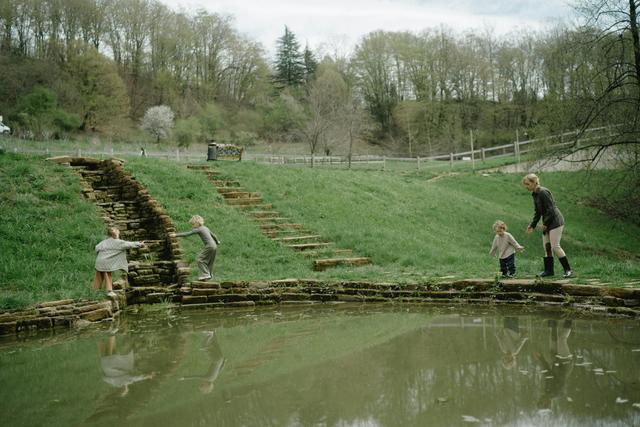Summer For Kids In The UK
Summer in the UK extends from June through August, presenting children with an extended break from school. This period, rich in warm weather and longer days, invites a myriad of opportunities for outdoor activities. The tradition of summer holidays, deeply rooted in the UK’s cultural fabric, can be traced back to the late 19th century with the implementation of the Factory Act of 1874. This act not only redefined the industrial landscape but also introduced mandatory school breaks, originally devised to allow children to recuperate from the demands of industrial work, yet evolved into a vibrant season of exploration and play.
Throughout this time, children are afforded the luxury of time, away from the usual academic pressures, to delve into a broad spectrum of activities that combine fun with informal learning opportunities. From trips to local parks and historical sites to various community-led events, the UK's towns and cities come alive with festivals, workshops, and sports activities, each designed to cater to young interests and energies.
Summer also is the season when British coastal towns attract families from across the country, offering beach-related activities alongside traditional pier entertainments. In rural areas, the countryside becomes a playground for hiking, camping, and nature watching, allowing children to connect with nature and learn about their environment in interactive ways.
The planning and availability of these activities are often supported by local councils and charities, ensuring that options exist for families of all socioeconomic backgrounds to partake in. This contributes not only to an active summertime but also fosters community spirit and collective engagement among residents and visitors alike.
In sum, the essence of the UK summer for kids is about discovery, friendship, and a break from the structured learning environments of school. It's a time for physical growth and social development, realised through a vast palette of activities that are both planned and spontaneous. This summer, let your child experience the joy and freedom that this colourful season can offer.
The Benefits of Summer
Participating in summer activities delivers multifold health benefits for kids in the UK. Engaging in physical activities such as swimming, cycling, and various outdoor games ensures adequate physical development, improving cardiovascular health and enhancing muscle strength and coordination. Summer's ample daylight offers children crucial exposure to natural sunlight, promoting the necessary production of Vitamin D, essential for maintaining strong bones and a healthy immune system. Beyond physical health, these activities are pivotal in honing children's social skills. The interaction with peers in unstructured environments aids in the development of vital societal skills, such as effective communication, cooperation, and resolving conflicts. Emotionally, the escape from academic demands provides a stress-relief outlet, allowing children to unwind and enjoy their holidays, which is crucial for their mental well-being. Creatively, activities centred around arts, crafts, and storytelling foster imagination and cognitive growth, enhancing creativity and problem-solving capacities. Overall, summer activities act as a comprehensive developmental tool that promotes health, social skills, and emotional well-being among children.
FAQs
Q1: What are the historical origins of summer holidays for children in the UK? A: The tradition of summer holidays in the UK dates back to the late 19th century, a time when the Factory Act of 1874 mandated school closures during the summer months. This law was initially enacted to give children a break from the demands of industrial labour, allowing them time to relax and play.
Q2: What are the health benefits of participating in summer activities for kids? A: Summer activities offer various health benefits for children, including physical activity that boosts cardiovascular health and improves muscle strength. They also facilitate Vitamin D production from sunlight exposure, essential for bone health and immune function. Additionally, these activities help children develop social skills and reduce academic stress, aiding their overall mental health and cognitive development.
Q3: Can you suggest some low-cost summer activities for children in the UK? A: Various low-cost or free summer activities are available for children across the UK, including exploring local parks, libraries, and museums. Many community centres and charities offer activities like arts and crafts sessions, local sports days, and workshops specifically during the summer holidays.
Q4: How can safety be ensured for children during summer activities? A: To ensure children's safety during summer activities, parents should establish and enforce clear safety rules, supervise their children closely, and educate them about potential hazards. This includes teaching them about sun protection, the importance of staying hydrated, and safety measures while swimming or playing near water.
Q5: What can parents do to keep their children engaged and active during spells of rainy weather in the summer? A: For rainy days, parents can engage their children with indoor activities such as arts and crafts, baking sessions, board games, or movie marathons. Signing up children for indoor classes, such as dance lessons or swimming, can also be a good option to keep them actively involved and entertained during the less sunny days of summer.






